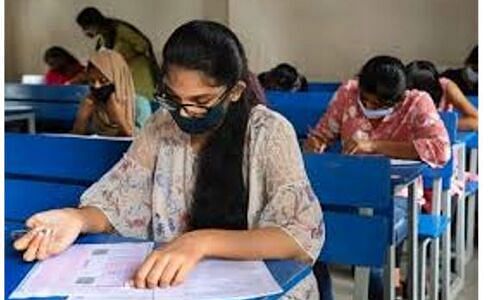The Parliamentary Standing Committee on Education, Women, Children, Youth and Sports in its latest report has made a set of significant recommendations for reforms in higher education sector, but ramifications of implementing some of those for different stakeholders will be a crucial factor which the central and state governments will find difficult to ignore. A key recommendation by the parliamentary panel is that the central government should give an active consideration to the demand that deemed universities be allowed to use the term ‘university’ by amending Clause 23 of the University Grants Commission (UGAC) Act, 1956 which states that no institution, other than a university established or incorporated by a Central Act, a Provincial Act or a State Act is entitled to use the word ‘University’. The Committee says that the term ‘deemed university’ creates a lot of confusion in foreign countries as there is no concept of deemed university in many parts of the world.
It is also of the view that as part of the administrative reforms which the Department of Higher Education may be considering towards the education sector, a Single Window System to be evolved through joint efforts of both state governments as well as the central government will help expedite approval from various regulatory authorities which Private/ Deemed/ other Universities are required to obtain. The Committee observes that as per the data of All India Survey of HigherEducation (AISHE), there are 1,043 universities, 42,343 colleges and 11,779 standalone institutions and out of these, almost 78. 6 per cent are in the private sector-aided or unaided colleges and only about 21 per cent are in the government sector, says the report.
The Committee also observes that the private sector is contributing in a significant way towards the overall growth in Higher Education and most of them also expect some financial support as some incentive and the same merits attention. Allocation of government fund for incentivising private sector higher education institutions runs the risk of further curtailment of fund available for government educational institutions and this may limit role of public sector in higher education sector. The Committee has flagged the issue of majority of higher educational institutions being without formal accreditation.
It observes that, at present, barely 20% of the approximately 50,000 educational institutions go for formal accreditation. “Considering the importance ofaccreditation as it underscores standardization and a guarantee towards minimum benchmark, more efforts to offer incentives to bring institutions under accreditation system is the need of the hour,” says the panel in its report harping on the importance of accreditation. Disaggregated data will shed light as to how many of the higher educational institution in both private and public sector are without formal accreditation and such data will be crucial to undertake a comprehensive review of quality of education, research in these higher education institutions.
The committee has observed that many deemed Universities to make quick money were starting Open Distance Learning courses undermining the qualitative research work and strongly recommends adequate measures to curb such tendencies after carefully examining the options. The panel sounded the alarm bell against “growing commercialisation of education in certain States” and “the disturbing trend of many colleges associating with coaching classes to prepare their enrolled students in certain cities” and making the learning process “a farce through this unholy nexus between coaching classes and colleges”. Quick implementation of the recommendation by the committee that the central government, in coordination with state governments must work out mechanisms to curb such trends and punish such institutions by derecognizing them which will provide a protective shield for students and their parents against crass commercialization in higher education.
The Committee’s recommendation for adoption of Cluster System in higher education, as a defined policy, through sharing of resources such as libraries, infrastructure, laboratories, best practices and other human resources will prove beneficial and UGC must evolve norms towards such sharing by reputed Universities/ IITs etc. which can bring about a radical change and optimal utilization of public fund allocated for higher education sector and ensure fair share to all education institutions of these resources. The Committee notes that even after several decades, many State Universities regularly fail in smooth and flawless conduct of examinations.
Instances like —a) question paper leak b) administering a wrong question paper c) confusion about seating arrangements and exam centre d) rampant cases of copying e) framing questions that are out of syllabi f) wrong examiners being appointed for assessment; and g) Student-Examiner nexus etc. are still not uncommon. The Committee recommends that the parameter of the Institution’s examination management competency be also considered as a mandatory norm towards consideration of accreditation.
The State Universities cannot be found wanting in maintaining the best standards of conducting examinations. Reforms are a must to improve quality and standards of higher education in India. .
From: sentinel
URL: https://www.sentinelassam.com/editorial/reforms-in-higher-education-600824



